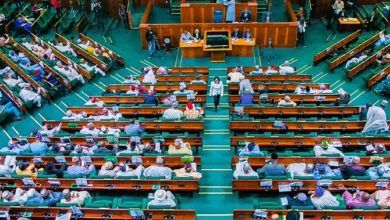
In the wake of the catastrophic flooding that struck Mokwa, Niger State, President Bola Tinubu has sanctioned the immediate release of ₦2 billion for the reconstruction of homes destroyed by the disaster. Additionally, 20 trucks of rice have been dispatched to provide immediate relief to affected residents.
Vice President Kashim Shettima announced these measures during his visit to the devastated town, emphasizing the federal government’s commitment to alleviating the suffering of the victims.
He conveyed President Tinubu’s heartfelt condolences and assured that comprehensive efforts are underway to address the multifaceted challenges posed by the flood.
The deluge, which occurred on May 28, 2025, following intense rainfall and the collapse of a nearby dam, has been described as one of the worst in Nigeria’s recent history.
Official reports indicate that over 200 lives have been lost, with more than 500 individuals still unaccounted for. The floodwaters submerged entire communities, destroyed critical infrastructure—including two bridges and multiple roads—and displaced over 3,000 residents
In response to the infrastructural devastation, President Tinubu has directed the immediate repair of the damaged bridges and the rehabilitation of drainage systems in Mokwa town to mitigate future flooding risks.
Despite these interventions, many displaced persons have expressed dissatisfaction with the relief efforts, citing inadequate shelter and insufficient food supplies. One resident, Mama Isah, lamented, “We are 17 people in my household, but we were only given one loaf of bread and some tea. How can that be enough for even our breakfast?”
The Niger State Government has also initiated emergency responses, distributing relief materials and deploying medical teams to prevent potential disease outbreaks due to overcrowded shelters and contaminated water sources.
However, the scale of the disaster has overwhelmed local capacities, prompting calls for increased support from federal agencies and international partners.
As recovery efforts continue, the Mokwa flood serves as a stark reminder of the urgent need for comprehensive disaster preparedness and resilient infrastructure to safeguard vulnerable communities against the increasing threats posed by climate change.





